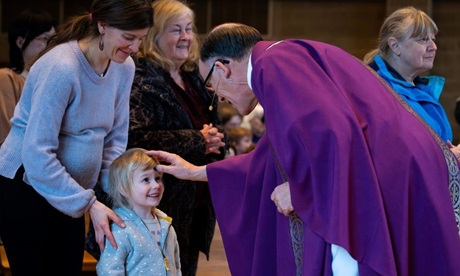What matters most when we reach out to Catholics who do not attend Mass regularly (aka “cultural Catholics”)? Everything.
It’s not just the right words, careful timing, thoughtful stories, our tone and everything else; it’s all of it.
Add to the top of the list how we personally live our Catholic faith in our everyday lives, and we have the short list of what matters when trying to connect with our friend, sibling, co-worker, adult child or whomever it might be as we hope to enliven their faith.
Spreading the good news is no simple or one-size-fits-all matter.
But in doing the research for my new book comparing the 53 percent of American Catholics who attend Mass “a few times a year” or “seldom or never” with the 47 percent who attend monthly or more often, I’ve learned a lot about cultural Catholics.
I want to share a few findings and offer some ways we might better reach them.
Reaching out to cultural Catholics
First, there are some notable areas in which cultural Catholics demonstrate, perhaps surprisingly, high Catholic belief and practice.
In asking if certain beliefs are “essential” or “somewhat essential” to the Catholic faith, more than three-fourths of cultural Catholics say this of Jesus’ physical resurrection from the dead (88 percent), helping the poor (82 percent), devotion to Mary (81 percent) and having a pope (77 percent).
These percentages (and many of the others in this article) are lower than frequent attenders’ percentages, but they still reveal a strong pull toward certain core Catholic beliefs.
For those concerned about cultural Catholics’ desire to pass the faith to their children, there is good news: 62 percent of cultural Catholics agreed that it is important to them that future generations of their family remain Catholic.
The unknown question is how well equipped are these Catholics to actively pass their faith along.
A heartening finding was another 62 percent agree that the sacraments are important to their relationship with God.
Although these Catholics are not receiving the Eucharist regularly, this demonstrates that rites like baptism, first Communion and matrimony are still important to them and for their children to receive.
And many cultural Catholics see themselves as firmly planted within Catholicism.
When asked how likely they are to leave Catholicism on a 1 (“I would never leave the Catholic Church”) to 7 (“Yes, I might leave the Catholic Church”) scale, 27 percent chose 1, 18 percent selected 2, 10 percent said 3, and 19 responded 4, with only 26 percent spread across the final three choices.
Loosely tethered
At the same time, there are some areas that reveal they are very loosely tethered.
For instance, although 12 percent say the Catholic Church is either “the most” or “among the most” important parts of their life, 42 percent say “quite important to me, but so are many other areas of my life,” 35 percent respond, “not terribly important to me,” and a final 11 percent say “not very important to me at all.”
They are less likely to show that Church teaching on political issues makes a difference to their own opinion.
Frequent Mass attenders are more likely to agree with the Church teaching than cultural Catholics, regardless of whether it is a “blue” or “red” issue.
For example, 44 percent of cultural Catholics agree with the church’s opposition to the death penalty, compared to 60 percent of frequent attenders.
And 79 percent of cultural Catholics support access to euthanasia for those “who are terminally ill and in great pain” while only 48 percent of frequent attenders do. And cultural Catholics are less involved than frequent attenders in their local communities, too.
Fortunately, they report overall positive experiences of parish life.
Although they are more likely than frequent attenders to say that parishes are too big and impersonal (50 percent) and that church leaders are out of touch (64 percent), a full 84 percent believe that parish priests do a good job.
Mass attendance
When asked why they don’t attend Mass more frequently, two answers rise to the top. First, 45 percent of cultural Catholics say work or family obligations pull them away.
Parish leaders might consider how they can demonstrate the relevance of parish involvement for stronger families and a sense of vocation to one’s occupation, especially on days like Christmas and Easter when more cultural Catholics are in attendance.
For example, they might announce the various family- or kid-friendly activities your parish will host on each of the 12 days of Christmas.
Second, 40 percent say they do not attend Mass more often because they are simply not a religious person.
I wonder where we went wrong with so many; when did we fail to show them the meaning and purpose and God’s in-breaking in countless ways in our lives? Of course, we are all religious persons.
Some of us simply have yet to discover this. How might we change course and make this more obvious in faith formation programsme?
These are just a few of the findings I uncovered in my analysis.
What can we do?
But a big question we each face in this data is what can I do about it? Not, “What new programme should my diocese or parish start to address this?”
Yes, that is an important question, especially for those in ministry, but it is not the question for all of us.
Instead, we must each ask, “What can I, what can each and every one of us do for the cultural Catholics in our own personal lives?” How do we accompany our parents, neighbours, godchildren, friends and all the rest?
Here is how I would begin: Read more
- Maureen K. Day is a Research Affiliate at the Center for Religion and Civic Culture as well as the Institute for Advanced Catholic Studies, both housed at the University of Southern California.
